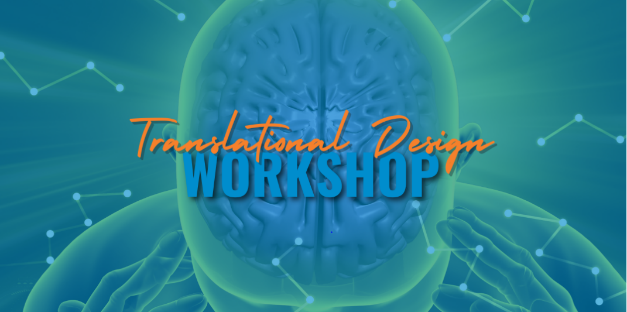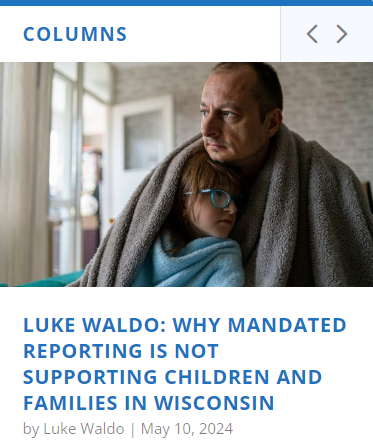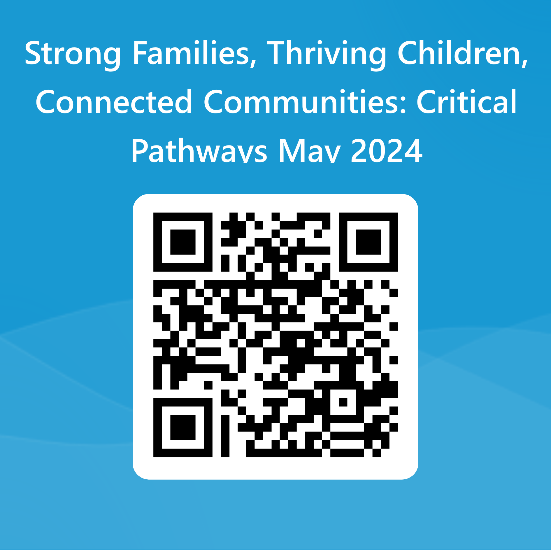The mission of the Institute for Child and Family Well-Being is to improve the lives of children and families with complex challenges by implementing effective programs, conducting cutting-edge research, engaging communities, and promoting systems change.
The Institute for Child and Family Well-Being is a collaboration between Children’s Wisconsin and the Helen Bader School of Social Welfare at the University of Wisconsin-Milwaukee. The shared values and strengths of this academic-community partnership are reflected in the Institute’s three core service areas: Program Design and Implementation, Research and Evaluation, and Community Engagement and Systems Change.
In This Issue:
- Program Design and Implementation
- Research and Evaluation
- Community Engagement and Systems Change
- Recent and Upcoming Events
Program Design and Implementation
The Institute develops, implements and disseminates validated prevention and intervention strategies that are accessible in real-world settings.
Translational Design Workshop
The Institute for Child and Family Well-being warmly welcomes the April 2024 cohort of Translational Design (TD). This workshop brings together human-centered design and evidence-based practice to develop innovative, sustainable solutions that support children and families.
Our current cohort is a unique representation of the child and family servicing field, including participants from Healthy Start and family preservation programs as well as leadership in residential treatment for youth. By harnessing the strengths of human-centered design, translational research, and strategic co-creation, this diverse cohort is poised to make significant strides toward developing sustainable solutions that will empower our communities.
Translational Design Workshop at a glance

TD prioritizes human-centered, system-responsive solutions that foster resilience in our -communities. By bridging cutting-edge research with practical interventions, TD seeks to mitigate the unique challenges faced by children, families, and service providers. The design follows a three phase process:
- Shared Understanding: Participants establish a unified perspective on the issues at hand. A common understanding of challenges creates a clear target for efficient solutions.
- Co-Creation: By engaging both professionals and those with lived experiences, participants will design and test innovative solutions that can be effectively implemented within their systems.
- Capacity-Building: The cohort will gain the tools and knowledge necessary for sustained implementation, including program materials, training, and coaching.
Stay tuned for the inspiring innovations that will emerge from this cohort. If you are interested in learning more about the TD workshop or registering for future cohorts, contact Megan Frederick-Usoh at mfrederick-usoh@childrenswi.org or Luke Waldo at lwaldo@childrenswi.org.
Research and Evaluation
The Institute accelerates the process of translating knowledge into direct practices, programs and policies that promote health and well-being, and provides analytic, data management and grant-writing support.
New Project Enhancing School-Centered Mental Health Services
This project is designed to strengthen and evaluate Lutheran Social Services (LSS) of Wisconsin and Upper Michigan’s School-Centered Mental Health (SCMH) model, which combines traditional school-based counseling with in-home support provided by a family coach. Through screening, referral, and service coordination, family coaches address social determinants of health and enhance family stability, reinforcing the impact of school-based clinical services on children’s mental health and well-being.
With funding from the Wisconsin Partnership Program at the University of Wisconsin School of Medicine and Public Health, the ICFW UWM and LSS teams will collaborate on a multi-method evaluation gathering data from students, families, and program staff to support continuous improvement and refinement of the program model in anticipation of future dissemination and implementation research.
Community Engagement & Systems Change
The Institute develops community-university partnerships to promote systems change that increases the accessibility of evidence-based and evidence-informed practices.
Strong Families, Thriving Children, Connected Communities (SFTCCC) Initiative Progress and Updates
We began our Strong Families, Thriving Children, Connected Communities (SFTCCC) journey in 2022 with the belief that bringing people together, sharing ideas, and building relationships can drive systems and policy changes to prevent family separation due to neglect. The past six months have been especially energizing as we continue to connect with passionate changemakers, learning from many along the way. We’re building a shared understanding around key issues in our critical pathways, striving to strengthen local capacity, elevating local efforts, highlighting innovative ideas, and fostering strong relationships. Here are some highlights since our last newsletter:

Neglect is a Local Challenge
We convened roundtables across the state to understand how neglect manifests in different communities. Neglect is closely tied to local issues such as poverty, and the unique interests and resources in each community make it a distinctly local challenge. While common issues exist, challenges like ‘inadequate safe and affordable housing’ vary significantly from Milwaukee to Black River Falls.
Together for Children Conference
In April, during Strengthening Families Month, the Institute for Child and Family Well-Being (ICFW) facilitated a seminar at the Together for Children Conference titled “Empowering Communities: Innovative Strategies for Preventing and Responding to Child Neglect.” The seminar focused on collaborative and innovative approaches to address child neglect. It highlighted the critical role of partnerships, particularly with public organizations like Wisconsin’s Department of Children and Families (DCF) and local county programs, in fostering systemic changes and supporting stressed families. The event emphasized the importance of community engagement, shared learning, and co-designed solutions to prevent family separations due to neglect.
Mandated Reporting Shift
Ongoing discussions in our Basecamp forum and monthly Zoom meetings have focused on rethinking mandated reporting in our state. How can we encourage those making referrals to reconsider the role of Child Protection? Insights from medical social workers on reporting in their settings have been particularly valuable. Upcoming discussions will delve deeper into this topic. See Leah Cerwin’s article below for more information on this effort.
Season 2 of Our Podcast Wraps
Season 2 of “Overloaded: Understanding Neglect” has concluded, delving deeper into the systemic issues contributing to child neglect. The season explored the interplay between societal structures and individual circumstances, featuring experts, including social workers, policymakers, and families. The episodes discussed innovative strategies to prevent neglect and strengthen community support systems, emphasizing collaborative solutions and community engagement to create lasting change for vulnerable families.
The road to accomplishing our goal is long, and we understood this from the start. What keeps us optimistic is the positive response from people connecting around issues and efforts to move upstream. As we learn more about what works and what still needs to happen, we move closer to writing a new narrative about neglect prevention in Wisconsin. If you’re interested in joining the conversation, join our Basecamp community here or through the QR code.
Frequently Asked Questions (FAQs): Strong Families, Thriving Children, Connected Communities (SFTCCC) Initiative
Q1: What is SFTCCC?
A1: The Strong Families, Thriving Children, Connected Communities (SFTCCC) initiative, launched in 2022, aims to prevent family separation due to neglect by fostering collaborations and building relationships across various sectors.
Q2: How does SFTCCC address child neglect?
A2: SFTCCC tackles child neglect by promoting partnerships, shared learning, and innovative strategies tailored to local community challenges, such as poverty and inadequate housing.
Q3: What are the recent updates from SFTCCC?
A3: Recent highlights include roundtables on local neglect challenges, a seminar at the Together for Children Conference, ongoing discussions about mandated reporting, and the conclusion of Season 2 of the podcast “Overloaded: Understanding Neglect.”
Q4: Why is child neglect a local challenge?
A4: Neglect is a local challenge because its causes and solutions vary widely between communities, requiring tailored, community-specific approaches.
Q5: What was discussed at the Together for Children Conference?
A5: The seminar focused on innovative strategies to prevent child neglect, emphasizing partnership, local dynamics, and storytelling to create conditions for change.
Q6: What are the discussions on mandated reporting about?
A6: The discussions aim to rethink when to refer to CPS, encouraging better support for families and more effective referral practices with community partners.
Q7: What themes were covered in Season 2 of the podcast?
A7: Season 2 explored systemic issues contributing to neglect, featuring experts discussing collaborative solutions and community engagement with policy, practice, and lived experience experts.
Strong Families, Thriving Children, Connected Communities Initiative: Reimagining Mandated Reporting in the Community Collaboration Pathway
By Leah Cerwin
The Institute for Child and Family Well-Being (ICFW) hosts learning sessions involving various invested parties to address the shortcomings and challenges of mandated reporting training and laws in meeting the needs of Milwaukee families.
Individuals from various counties across the state have come together to address how family separations resulting from neglect are frequently linked to poverty. The practice of mandated reporting can create surveillance and trauma for these families without offering the necessary support and resources.
The Reimagining Mandated Reporting workgroup, comprising members from Dane, Walworth, Waukesha, Rock, Brown, and Milwaukee counties, has identified common themes in the experiences of mandated reporters. They have also highlighted opportunities for fostering connections to drive positive change.
These themes have included improving mandated reporter training, collaborating across systems, addressing gaps in community resources, and incorporating parent voice.
The ICFW is currently hosting Inquiry Based Learning Sessions, in which guest speakers from identified sectors attend to discuss what mandated reporting looks like in their area of practice. April speakers included those in medical settings, and future topics and speakers are being identified by the group for subsequent sessions.
Join our Strong Families, Thriving Children, Connected Communities’ Critical Pathways journey here.
Join the Conversation: Moving Towards a More Inclusive and Innovative Workforce
In a political paradigm that is marked by rapid social and economic shifts, the conversation around workforce inclusion and innovation has never been more urgent. As such, we have asked ourselves, stakeholders and those with lived experience many challenging questions.
Most recently, in a conversation with our partners, we asked, “How might we leverage preexisting systems to diversify, support and expand our workforce?” This question is loaded with opportunity and offers many routes for advancement and points for exploration. As one of many actionable solutions, we conducted a deep dive into the role of paraprofessionals in the workforce and proposed the following innovation.
Support the expanded role of paraprofessionals in prevention efforts by prioritizing evidence-based interventions suitable for them in the IV-E Clearinghouse, offering technical assistance, disseminating best practices for their deployment, and providing training for adapting these interventions for paraprofessional delivery.
Lack of accessibility to child and family health interventions is ubiquitous. However, with the expansion of the paraprofessional workforce, we can at a minimum, increase opportunities for peer support, shorten waitlist for drug treatment and mitigate workforce shortages.
Paraprofessionals possess experiential knowledge that injects a sense of connectivity and specificity into the intervention, attributes that are often absent in the professional healthcare workforce. With over 40% of paraprofessionals identifying as nonwhite[1], they bring essential racial and ethnic diversity to the field. This diversity enhances the workforce’s ability to implement interventions that are culturally and contextually appropriate, thereby bridging gaps in person centered service delivery to the families they serve.
Paraprofessionals as peer support are informed and empathetic, and uniquely positioned to form meaningful connections and foster supportive environments that can enhance mental health outcomes.[2] As drug addiction counselors, they increase accessibility and affordability of necessary treatments. According to Goldstrom et al (2006), mutual support groups and self-help organizations “run by and for mental health consumers” are more numerous, thereby shortening waitlist and increasing the timeliness of access to mental health services.
By providing essential services locally, at a lower cost and in greater numbers, paraprofessionals fill workforce gaps in rural areas, strengthen community ties and enhance sustainability of interventions in underserved service areas.[3]
As a part of our Strong Families, Thriving Children, Connected Communities initiative, we seek to build a shared understanding around family separations due to reasons of neglect. Our ongoing dialogue aims to explore and implement actionable solutions to challenges facing overloaded families in local communities as well as address overarching systemic issues.
By engaging those with lived experience, industry experts and various stakeholders such as yourselves, we can co-create solutions that lead to a more inclusive and innovative workforce. Your input is invaluable and we want to hear from you.
Are there other ways workforce initiatives could help families prevent neglect?
Join us on Basecamp here to share your thoughts on our proposed innovation and/or the question above. Together, let’s shape a workforce that is not only equipped to handle the challenges of today but is also empowered to innovate for tomorrow.
[1] Zippia (2024). Education paraprofessional demographics and statistics in the US.
[2] Bryan, A. E., & Arkowitz, H. (2015). Meta-analysis of the effects of peer-administered psychosocial interventions on symptoms of depression. American journal of community psychology, 55, 455-471.
[3] Bryan & Arkowitz, Meta-Analysis of the Effects of Peer Administered Psychosocial Interventions on Symptoms of Depression
Milwaukee Independent Column Featuring Strong Families, Thriving Children, Connected Communities Initiative
By Luke Waldo

Beginning in January of this year, I was given the honor to share the work that we are doing in Milwaukee and across our state with our Strong Families, Thriving Children, Connected Communities initiative through a monthly column in the Milwaukee Independent. Read the latest columns below.
January’s column: Why the Root Causes of Child Neglect Have Overloaded Families in Milwaukee and Across the State
February’s column: How the Weight of Poverty and Systemic Failures are Overloading Families
April’s column: A Journey through India and its Lessons of Social Connectedness for Milwaukee
May’s column: Why Mandated Reporting is not Supporting Children and Families in Wisconsin
Recent and Upcoming Events
The Institute provides training, consultation and technical assistance to help human service agencies implement and replicate best practices. If you are interested in training or technical assistance, please complete our speaker request form.
Upcoming Events
- Reimagining Mandated Reporting – Overloaded: Understanding Neglect Podcast Event – May 14th
- Community Collaboration Critical Pathway Meeting – Mandated Reporting in Medical Settings – May 31st
- Transforming Narratives on Child Neglect: A Workshop on Framing, Storytelling, and AI – June 26th
Recent Events
- Overloaded: Understand Neglect Season 2 – All 11 episodes available now!
- Translational Design Workshop – April-May 2024
- Building Brains with Relationships Workshops with WCWPDS – New Dates for 2024
- Together for Children Conference – April 8-10


